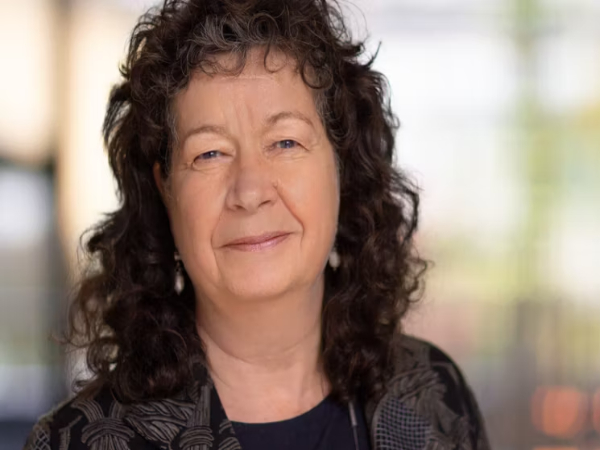Wendy Larner: Visionary Leader and Trailblazing Human Geographer
Exploring the Life, Career, and Impact of Cardiff University’s Vice-Chancellor

Wendy Larner is a New Zealand-born social scientist, human geographer, and university leader known for her extensive research on globalisation, governance, and gender. Currently serving as President and Vice-Chancellor of Cardiff University in Wales, Wendy Larner has held senior academic positions across New Zealand and the United Kingdom, including Dean, Provost, and Professor. Her work bridges academic scholarship and institutional leadership, making her one of the most influential figures in higher education today. She is recognized not only for her leadership but also for her contributions to feminist geography and global governance studies.
Early Life and Education
Wendy Larner was born in New Zealand in 1963, making her around 62 years old as of 2025. From an early age, she exhibited a keen interest in social sciences and human geography, which eventually guided her academic pursuits. She completed her undergraduate studies at the University of Waikato, earning a Bachelor of Social Sciences. She then pursued a Master of Arts at the University of Canterbury, graduating with First-Class Honors. Her master’s thesis focused on migration and female labour among Samoan women in New Zealand, reflecting her early interest in gender studies and global labour markets.
After her postgraduate studies in New Zealand, Wendy Larner moved to Canada to pursue a PhD in Geography and Political Economy at Carleton University. As a Canadian Commonwealth Scholar, she developed a strong foundation in political economy and social geography, laying the groundwork for her later research into governance, neoliberalism, and the social implications of globalisation.
Academic Career
University of Auckland
Wendy Larner began her academic career as a lecturer at the University of Auckland in 1997. During her tenure, she focused on feminist geography, social policy, and migration studies. Her research explored the intersection of gender, work, and global economic changes, gaining recognition for its depth and originality. She quickly advanced to senior lecturer, building a reputation as both a rigorous scholar and an effective educator.
University of Bristol
In 2005, Larner moved to the United Kingdom to join the University of Bristol as Professor of Human Geography and Sociology. During her time at Bristol, she also served as Dean of Social Sciences and Law. In this capacity, she oversaw curriculum development, faculty administration, and research strategy across multiple disciplines. Larner was known for fostering interdisciplinary collaboration and encouraging research that bridged theoretical and practical perspectives on governance, neoliberalism, and globalisation.
Victoria University of Wellington
In 2015, Wendy Larner returned to New Zealand to become Provost at Victoria University of Wellington. As Provost, she was the university’s chief academic officer, responsible for overseeing academic programs, faculty development, and strategic initiatives. She focused on enhancing the university’s research profile, international collaborations, and policies that supported diversity and inclusion within academic staff and student populations.
Cardiff University
Wendy Larner assumed the role of President and Vice-Chancellor of Cardiff University on 1 September 2023. She became the first female Vice-Chancellor in the institution’s history, a milestone that highlights her pioneering role in higher education leadership. In this position, Larner chairs the University Executive Board, the Senate, and several key committees, guiding strategic planning, financial management, and institutional governance. Her vision emphasizes a global and civic approach to higher education, integrating sustainability, equity, and academic excellence.
Research Contributions
Wendy Larner’s academic research spans human geography, governance, globalisation, and gender studies. Some of her key research contributions include:
-
Globalisation and Knowledge Networks: Larner has analyzed how universities and diaspora networks contribute to the flow of knowledge across borders, highlighting the role of academic intermediaries in shaping global knowledge economies.
-
Neoliberalism and Governance: She has critically examined how neoliberal policies affect governance structures in institutions and societies, particularly in New Zealand and other Anglophone countries.
-
Feminist Geography: Larner’s work in feminist geography explores how gender intersects with labour, place, and power in both local and global contexts.
-
Higher Education Studies: Beyond geography, she has studied universities themselves as dynamic social and economic institutions, contributing to debates on institutional transformation in the face of globalisation.
Her research has been published in high-impact academic journals and books, earning her international recognition. She was awarded the Victoria Medal by the Royal Geographical Society, became a Fellow of the Royal Society Te Apārangi in New Zealand, and was inducted as a Fellow of the Academy of Social Sciences in the UK.
Leadership and Administrative Achievements
Academic Leadership
Throughout her career, Wendy Larner has been known for her capacity to blend scholarly insight with effective leadership. As Dean at Bristol, she promoted interdisciplinary research and inclusive governance. At Victoria University of Wellington, she spearheaded initiatives to expand international partnerships and modernize academic programs.
Strategic Vision at Cardiff University
As Vice-Chancellor at Cardiff, Larner has emphasized a forward-looking strategy for global engagement, sustainability, and institutional excellence. She has introduced consultative initiatives to involve staff, students, and stakeholders in shaping Cardiff’s strategic priorities. Her tenure also coincides with challenging financial conditions in higher education, requiring decisive leadership to balance budgets, academic quality, and staff welfare.
Wendy Larner Age, Family, and Personal Life
-
Age: Wendy Larner was born in 1963, making her approximately 62 years old in 2025.
-
Family: Wendy Larner maintains a private personal life. There is limited public information about her family, marital status, or children. She has chosen to focus public attention on her professional and academic achievements rather than personal details.
-
Net Worth: While her exact net worth is not publicly available, Wendy Larner’s role as Vice-Chancellor includes a salary of approximately £290,000 per year. Her net worth likely reflects her earnings over decades of senior academic and administrative positions.
Awards and Recognition
-
Victoria Medal – Royal Geographical Society
-
Fellow of the Royal Society Te Apārangi
-
Fellow of the Academy of Social Sciences (UK)
-
Fellow of the Learned Society of Wales
-
Principal Fellow of Advance HE
These honors highlight her contributions to academic scholarship, leadership, and the promotion of interdisciplinary research.
Influence on Higher Education
Wendy Larner’s work bridges research and leadership, influencing both scholarship and policy. Her approach to governance, globalisation, and gender equity has impacted:
-
University Administration: Offering insights into strategic planning, academic governance, and leadership development.
-
Policy Development: Advising governments and institutions on global knowledge networks and higher education strategies.
-
Academic Culture: Advocating for inclusion, equity, and interdisciplinary collaboration in research and teaching.
Her global perspective—born in New Zealand, trained in Canada, and working in the UK and New Zealand—provides a unique lens through which to understand contemporary challenges in higher education.
Wendy Larner Wikipedia Overview
Wendy Larner’s Wikipedia entry details her biography, education, research contributions, and leadership roles. It provides an accessible summary of her career trajectory, notable achievements, and awards. It also notes her role as the first female Vice-Chancellor of Cardiff University and highlights her international academic influence.
Challenges and Current Context
Like many university leaders, Wendy Larner faces complex challenges:
-
Financial pressures in higher education, including budget shortfalls and staff reductions.
-
Evolving student demographics and expectations.
-
Balancing institutional priorities with global competitiveness.
Her leadership is pivotal in navigating these challenges, maintaining academic standards, and positioning Cardiff University for long-term success.
Publications and Research Highlights
Some of Wendy Larner’s notable publications include:
-
“Globalising Knowledge Networks: Universities, Diaspora Strategies, and Academic Intermediaries”
-
“Neo-Liberalising Spaces and Subjectivities: Reinventing New Zealand Universities”
-
Chapters in Global Governmentality: Governing International Spaces
-
Collaborative work on feminist geography, governance, and globalisation
Her research continues to shape debates in geography, sociology, and higher education studies.
Legacy and Impact
Wendy Larner’s career exemplifies how academic excellence can inform leadership. She has made significant contributions to:
-
Feminist Geography: Illuminating the role of gender in global labour and governance.
-
University Leadership: Breaking barriers as a female Vice-Chancellor.
-
Global Scholarship: Strengthening connections between local and international academic communities.
Her work has inspired students, researchers, and university leaders worldwide, marking her as a transformative figure in contemporary academia.
Conclusion
Wendy Larner is a remarkable scholar and leader whose work spans continents, disciplines, and institutions. From her New Zealand roots to her leadership at Cardiff University, she has combined rigorous research with visionary leadership. At approximately 62 years old, she continues to influence the fields of geography, governance, and higher education. While she maintains a private personal life, her professional achievements, including awards, research, and institutional leadership, firmly establish her legacy as one of the most influential academics and university leaders of her generation.



